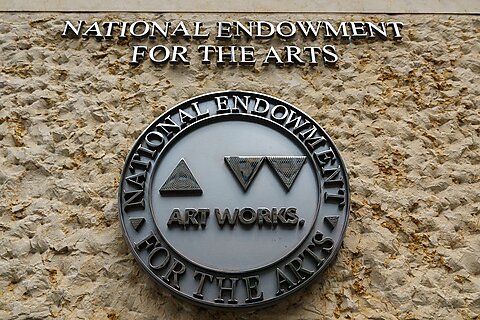Using Government Arts Funding To Wage Culture War

Last month, a federal judge in Rhode Island struck down the Trump administration’s attempt to restrict National Endowment for the Arts (NEA) funding from groups that “promote gender ideology.”
The outcome is legally unsurprising. For grants or subsidies to private actors, the First Amendment forbids the government from penalizing a particular viewpoint. In this case, the court also found Administrative Procedure Act defects: you can’t rewrite grant rules by fiat. An agency must offer a reasoned explanation for changing a policy like this.
The artists themselves celebrated the verdict as a victory for free speech. For conservatives, it’s another reason why waging the culture war using the government purse is a dead end. To achieve the outcomes they want, the NEA should be abolished rather than commandeered.
Back in May, Emory professor Mark Bauerlein pitched that the Trump administration should weaponize the NEA towards conservative ends in the culture war. One way they tried to do this practically was by eliminating funding for art encompassing expression about gender ideology.
I argued in response to Bauerlein’s piece that, as a matter of principle, government should never force taxpayers to fund artistic messages they disagree with. In practice, the artistic community is highly progressive, and any attempt to shape grants towards conservative viewpoints would lead to huge complaints from artists and be widely seen as debased art.
Given that Democrats hold executive power a lot of the time, and would change funding priorities accordingly in office, no conservative grant conditions would endure either. At best, any victories would be fleeting. The case for using these grants to advance culture war arguments was weak.
Well, now the courts have provided another reason the plan is doomed: enforcing conservative constraints on grantees’ speech is illegal.
The NEA had hoped to empower its chairperson to review applications “for artistic excellence and merit,” weeding out “gender ideology” in the process. That was deemed illegal for two reasons. First, filtering applicants based on their viewpoint on gender violates the First Amendment. Second, agencies have a duty to justify themselves when they change their rules, something NEA was found not to have done.
Most libertarians would say, conditional on arts subsidies existing, that this is exactly right: the government should avoid policing speech, which inevitably means treating some views as valid and others taboo. “Gender ideology” is itself vague, inviting arbitrary enforcement and so further chilling protected speech. The First Amendment rightly subjects viewpoint discrimination to the highest levels of judicial scrutiny, which is why such restrictions almost never survive.
Yes, when the government commissions its own speech through art, it has latitude to control the message. The Supreme Court has also upheld a statute that allows the NEA to “take into consideration general standards of decency and respect” in its grantmaking process. But while this naturally means some censorship by subject selection, the courts do not allow the NEA to condition grants on specific viewpoints.
The result is that the NEA’s existence means conservatives will be funding grantees whose work they fundamentally disagree with. In fact, government-funded art is bound to violate someone’s freedom of conscience. And for what? It’s unnecessary in a free society. The NEA’s budget is tiny, and art that people want can be funded voluntarily through the private and non-profit sectors, where no single viewpoint has coercive power over others’ money.
Conservatives should take the loss and heed this lesson. The NEA cannot be “captured” nor “balanced” towards their cultural goals. The only way to avoid forcing Americans to subsidize art they reject is to listen to us libertarians and abolish the NEA altogether.





